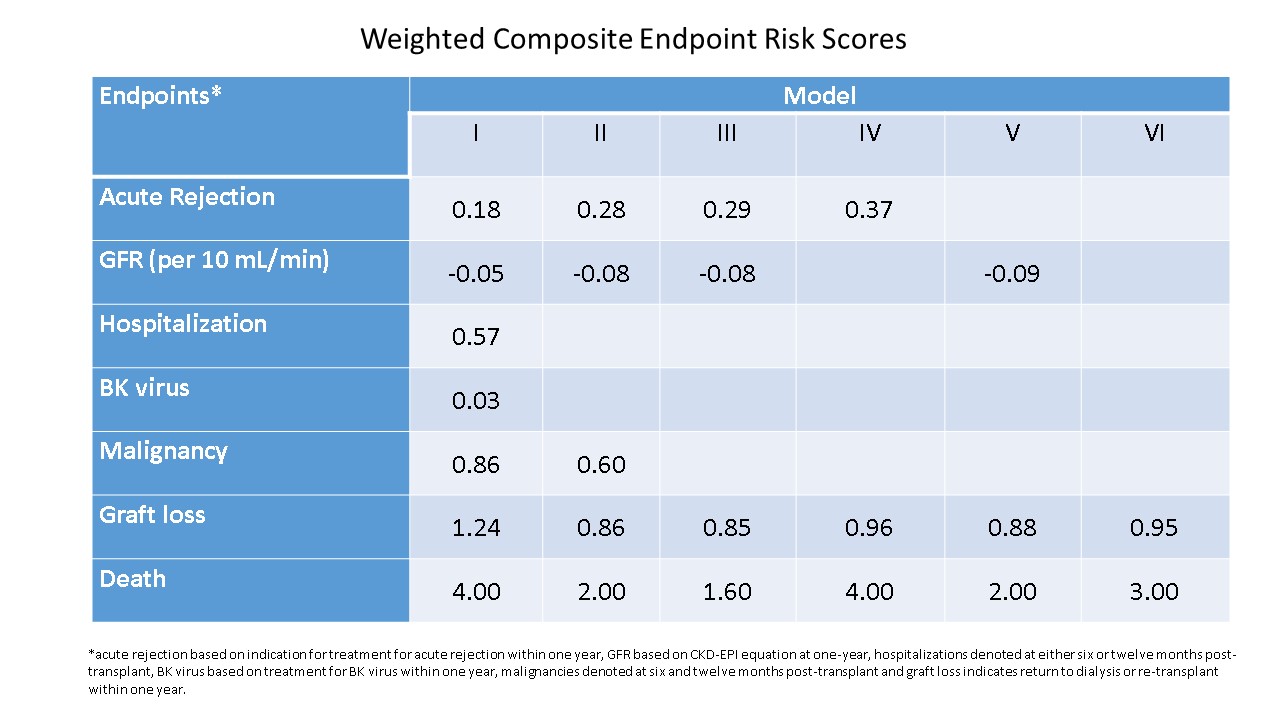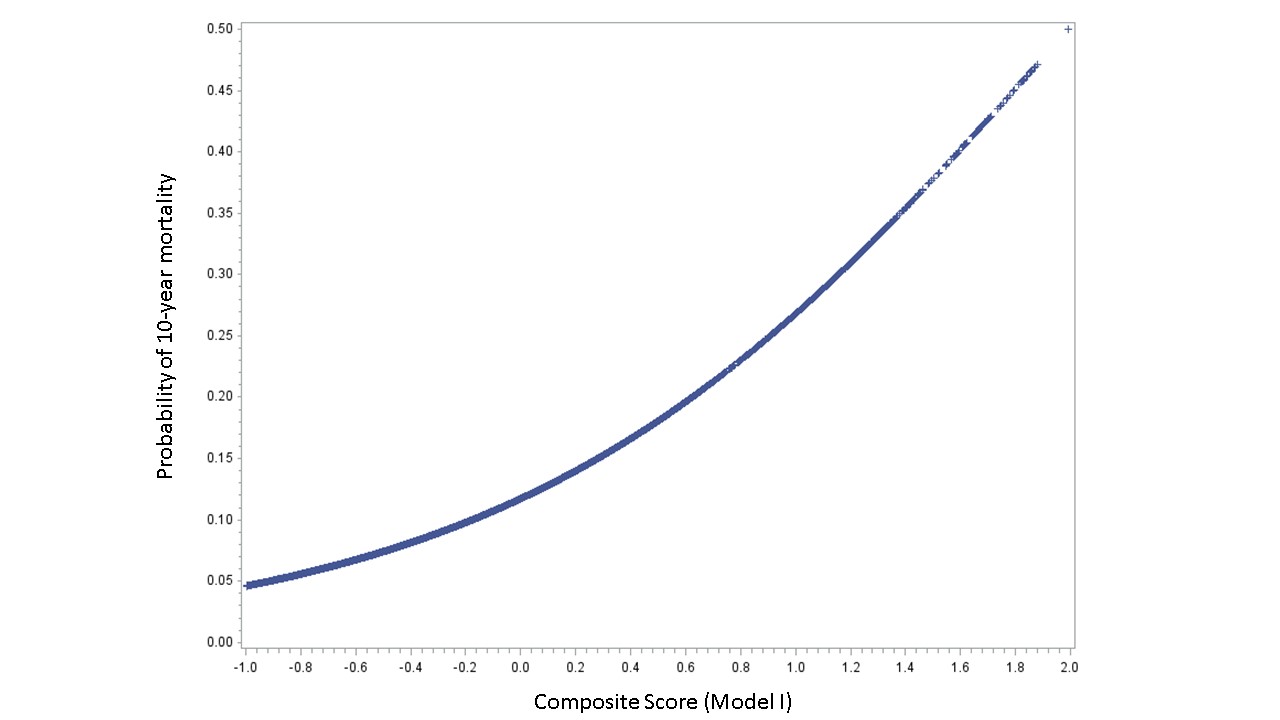Utility of Weighted Composite Endpoints in Kidney Transplantation.
Cleveland Clinic, Cleveland, OH
Meeting: 2017 American Transplant Congress
Abstract number: 502
Keywords: Immunosuppression, Kidney transplantation, Post-operative complications
Session Information
Session Name: Concurrent Session: Economics and Outcomes in Organ Transplantation
Session Type: Concurrent Session
Date: Tuesday, May 2, 2017
Session Time: 4:30pm-6:00pm
 Presentation Time: 4:30pm-4:42pm
Presentation Time: 4:30pm-4:42pm
Location: E271a
Introduction
Advances in therapeutic development and innovation are stifled in transplantation based on difficulties demonstrating efficacy of novel interventions using standard endpoints. Current RCTs are constrained to isolated endpoints or forms of composite endpoints in which elements have highly distinct clinical impact(e.g. acute rejection,graft loss,death). More sophisticated endpoints may allow for appropriate adjudication of clinical benefit while incorporating multiple disease pathways and increased statistical power.
Methods
To illustrate this concept, we used national SRTR data and developed a series of weighted composite endpoints for kidney transplant recipient outcomes. Models were adjusted for clinical, donor and demographic characteristics of adult solitary kidney recipients. Primary results were based on adjusted associations of intermediate endpoints on death within the follow up period.
Results
Model coefficients are scaled based on the relative hazard (beta estimate) from Cox proportional hazard models. Several model permutations were developed based on inclusions of different sets of complications which varying severity and specificity of data capture. Models with relative weights of endpoints are displayed in Figure 1 with the associated probability of mortality based on the weighted composite score(model I) depicted in Figure 2. Conclusions
Conclusions
Weighted composite endpoints should be strongly considered for implementation in clinical transplant research. As compared to current methodology, these endpoints add improved sensitivity to events with appropriate clinical significance. Further discussion concerning the optimal source of data and specific components of weighted endpoints is important and appropriate, however, evolving from current practice with antiquated endpoints and methods is critically important to advance science in this field.
CITATION INFORMATION: Schold J, Goldfarb D, Flechner S, Buccini L, Augustine J, Poggio E. Utility of Weighted Composite Endpoints in Kidney Transplantation. Am J Transplant. 2017;17 (suppl 3).
To cite this abstract in AMA style:
Schold J, Goldfarb D, Flechner S, Buccini L, Augustine J, Poggio E. Utility of Weighted Composite Endpoints in Kidney Transplantation. [abstract]. Am J Transplant. 2017; 17 (suppl 3). https://atcmeetingabstracts.com/abstract/utility-of-weighted-composite-endpoints-in-kidney-transplantation/. Accessed February 18, 2026.« Back to 2017 American Transplant Congress
